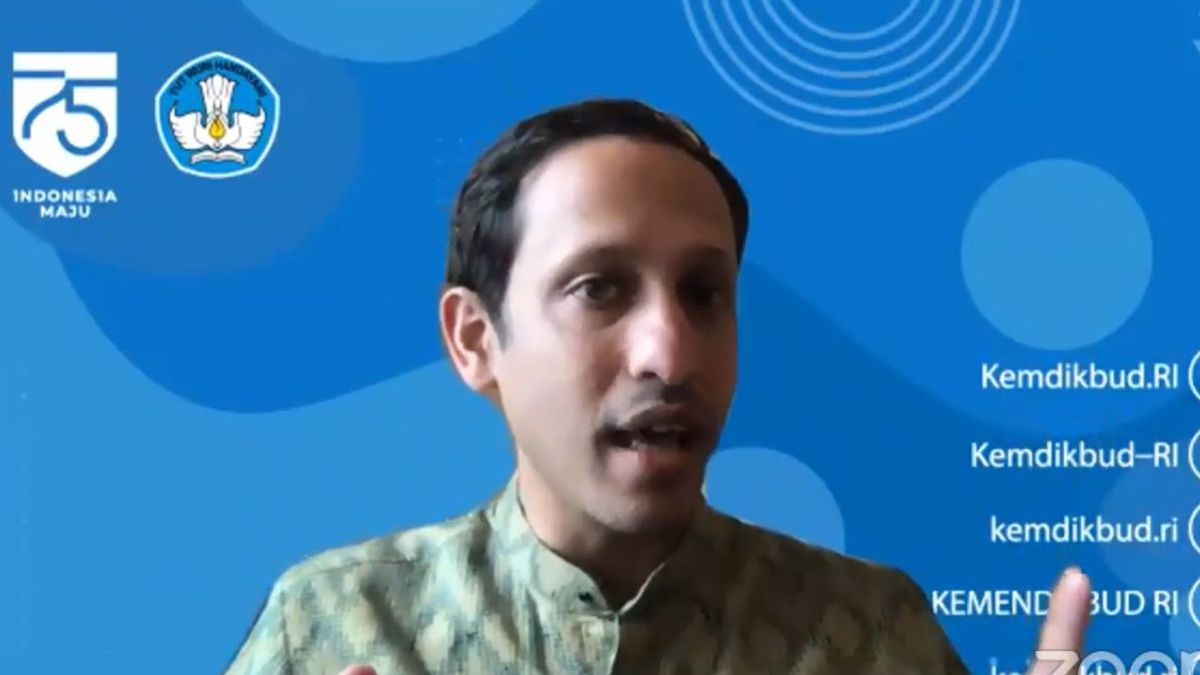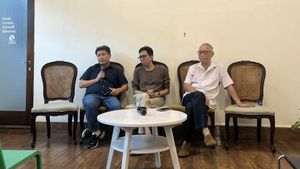JAKARTA - Secretary General of the Federation of Indonesian Teachers' Unions (FSGI), Heru Purnomo, said that his party appreciated the decision of the Minister of Education and Culture Nadiem Makarim to postpone the implementation of the National Assessment.
"FSGI appreciates the Ministry of Education and Culture of the Republic of Indonesia for its policy of delaying the implementation of the National Assessment which was originally to be held in March 2021 and postponed to September-October 2021," Heru said in his statement, Monday, January 25.
Heru said, postponing the National Assessment was appropriate, given the uncontrolled COVID-19 case. Not to mention, several regions in Indonesia have just experienced natural disasters, such as in South Kalimantan, West Sulawesi, and Central Java.
When there is any disaster, said Heru, children and women are the most vulnerable groups affected during disasters, both natural disasters and non-natural disasters such as the current COVID-19 pandemic.
"Therefore, when natural disasters and non-natural disasters occur simultaneously, as currently experienced in several regions in Indonesia, it can be ascertained that the fulfillment of the right to education and learning will be very difficult to implement," he said.
For information, Minister of Education and Culture (Mendikbud) Nadiem Makarim said he would postpone the National Assessment which was originally carried out in March 2021 to September-October 2021.
There are a number of reasons for the delay in the implementation of the National Assessment, from the increasing rate of spread of COVID-19 to schools that are not ready to undergo the National Assessment in March.
Nadiem wants the National Assessment to continue this year to find out how much learning outcomes occurred during the COVID-19 period. According to him, if the National Assessment was not carried out this year, the data would be difficult to find.
"We will not have a test on a national scale in 2020 because of the COVID-19 pandemic, and if it is not implemented, we will not have baseline data points, meaning we will not be able to find out which schools and areas are the most disadvantaged," said Nadiem at the Joint Working Meeting. Commission X DPR RI, Wednesday, January 20.
"If we cannot find out which schools are lagging behind, we cannot make a budgeting strategy and assistance for schools that need assistance," he continued.
The National Assessment consists of three parts, namely the minimum competency assessment (AKM), character survey, and learning environment survey. AKM measures students' reading literacy and numeracy as a result of cognitive learning.
Then, the character survey is measuring attitudes, habits, values as a result of noncognitive learning. Students and teachers who participated in this survey.
Then, the learning environment survey is to measure the quality of learning and the school climate that supports learning. Participating in this survey is the head of the education unit.
The English, Chinese, Japanese, Arabic, and French versions are automatically generated by the AI. So there may still be inaccuracies in translating, please always see Indonesian as our main language. (system supported by DigitalSiber.id)













